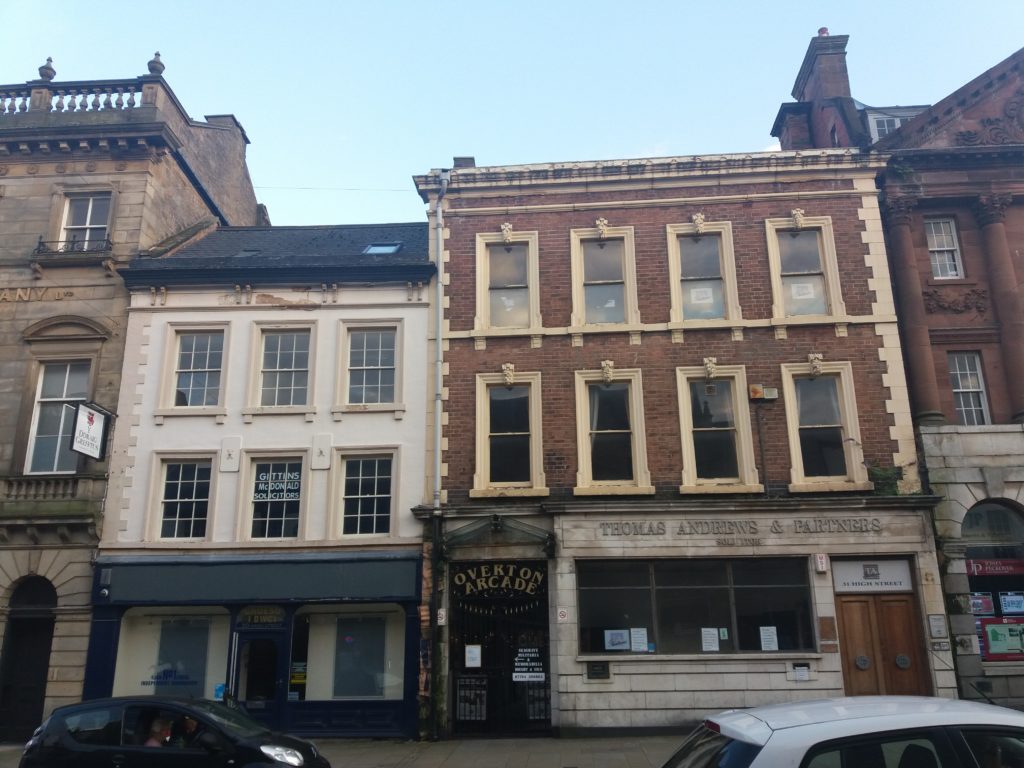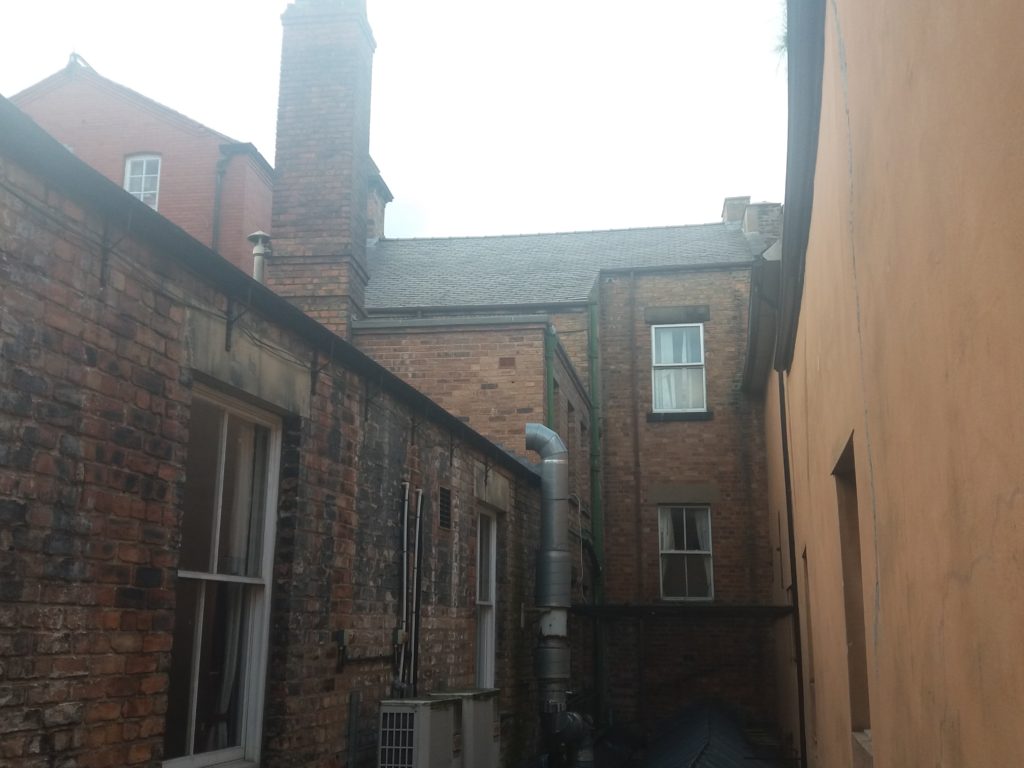
Arbtech were contacted to assist with a project in the town centre of Wrexham, in North Wales. The client required bat surveys which were needed to form part of a planning application for a listed building. This planning application was being submitted to Wrexham County Borough Council.
Site Background
Wrexham is a large town in northeast Wales. It is located very close the Wales-England border, and is close the city of Chester. There are a number of interesting sites around Wrexham including Pontcysyllte Aqueduct, Valley Crucis Abbey and Erddig Hall.
The building is located on the main high street of Wrexham town centre and forms part of the Overton Arcade. Arbtech were instructed to assist with the project when the local council raised concerns regarding bat presence in the building. As it is a statutory requirement for local councils to consider the effects of developments on protected species, the local council and Natural Resource Wales had advised our client to provide information regarding bat presence in the building.
Our Work
In order to determine whether the proposed development was likely to impact any bat roosts, Arbtech were instructed to firstly carry out a preliminary roost assessment (stage 1), followed by a bat emergence survey (stage 2). At Arbtech we strive to do right by our clients and so on this occasion, we were able to complete these surveys on the same site visit, thereby saving significant time and money for our client.
As the bat emergence survey must be started approximately 1/2 hour before sunset, our consultant met the client on-site later on in the afternoon to conduct the preliminary roost assessment. Mel carried out the internal inspection of the building with the client, talking them through the process and answering any queries whilst doing so. The client was then able to leave our consultant on-site to conduct the external part of the preliminary roost assessment and later the bat emergence survey.

By doing both surveys at the same time the client did not have to meet our consultant on-site twice, saving them time. It also meant we could reduce the overall fees for our client and we could produce both survey reports within the same week, preventing any delays in the planning process.
Next Steps
The results of the preliminary roost assessment and bat emergence survey concluded that bats are unlikely to be using the building and therefore the proposed developments are unlikely to disturb or destroy any bat roosts.
Our consultant was able to carry out and produce the reports for this site within a week, which allowed the client to submit this information to the local planners without delay. This case is now with the local planners who are making their decision on planning.
Due to our commitment to our clients, we were able to produce the required surveys and report for this project speedily and cost-efficiently. If you require bat, ecology or similar surveys for planning purposes or otherwise please fill out one of our customer inquiry forms on our website or alternatively you can call our head office on 01244 661170.
